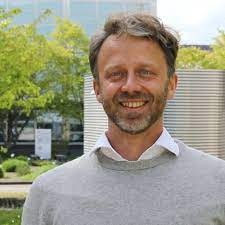
- This event has passed.
MEAM Seminar: “Lymphocyte Mechano-regulation for Immunotherapies”
March 12, 2024 at 10:00 AM - 11:30 AM
In the dynamic field of biomedical engineering and immunotherapy, my recent research unveils the intricate relationship between mechanical forces and immune cell activation, bridging the realms of biology and immunotherapy. This study aims to unearth innovative pathways for adoptive immunotherapies, emphasizing the role of biomedical and mechanobiological insights in broadening our understanding.
The core focus lies in decoding the mechanobiological pathways governing T cell and B cell activation. It explores the interplay between external mechanical cues and the immune cell activation process, with a nod to biomedical concepts for fresh perspectives. In my presentation I will focus on links between mechanical cues, gene expression profiles, and the spatial organization of genomic loci and transcripts within immune cells. Combining optical super-resolution imaging, traction force and molecular force microscopy with functional read-outs – such as single cell transcriptomics and mitochondrial activity – opens possibilities for quality control in chimeric antigen receptor T (CAR-T) cell therapy, with potential applications in clinical contexts.
This interdisciplinary approach holds the potential to revolutionize adoptive immunotherapies, incorporating insights from biomedical and life sciences.

Enrico Klotzsch
Junior Professor, Experimental Biophysics and Mechanobiology, Humboldt Universität zu Berlin
Enrico Klotzsch is Junior Professor at Humboldt Universität zu Berlin in the Institute of Biology, Biophysics and furthermore leads a research group at ETH Zurich in the Department of Health Sciences and Technology. Dr Klotzsch academic journey has spanned the fields of physics, biomedical engineering mechanobiology, immunology, and neurobiology. He obtained his Ph.D. from ETH Zurich in 2010, where he focused on the mechanical properties of fibronectin fibers using innovative techniques towards problems of tissue engineering. During his stays in Vienna, Austria and Sydney, Australia for his postdocs, he developed super-resolution techniques to apply them to problems in the fields of immunology and neurobiology.
His most recent work extended into immuno-oncology, investigating surface properties’ influence on T and B cell activation, with significant applications in cancer therapies has led to a Spin-Off ‘Immuni Technology’ that he currently leads.
